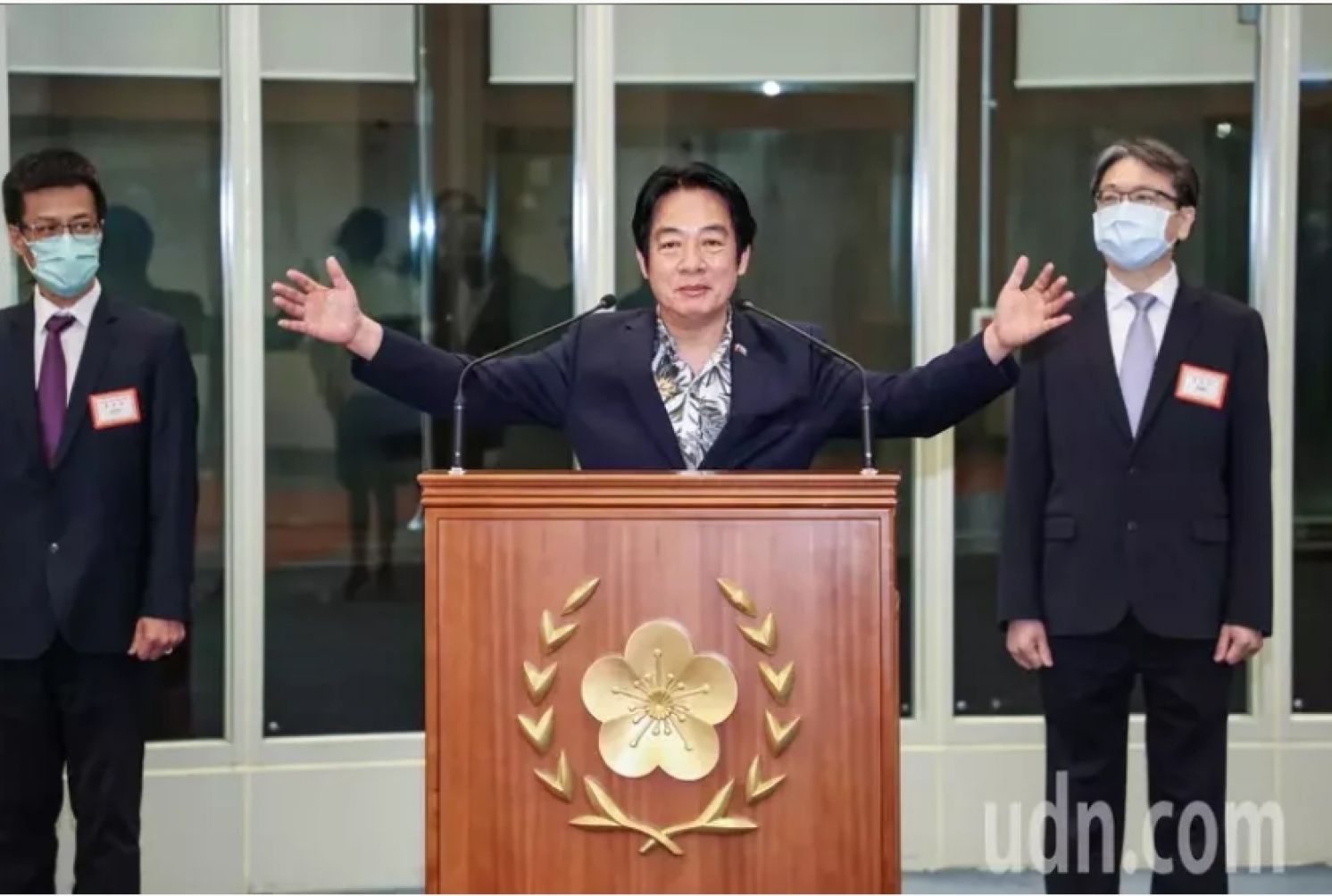
Is Lai's Cross-Strait Policy Discourse Acceptable to U.S. and Taiwan's People?
United Daily News Editorial, November 3, 2022
During his Palau trip, Vice President William Lai discussed cross-strait relations. One of his remarks that he will continue President Tsai Ing-wen's policy direction in cross-strait relations has been interpreted by some media as a minor fine-tune of his iconic position as a "pragmatic worker for Taiwan independence". The position has been seemingly fine-tuned, yet its connotation is still the same as what he has said during the Democratic Progressive Party’s (DPP) presidential primary election in 2019. However, reiterating the position with the role of vice-president, it may be seen as meaningful. The prototype of Lai's cross-strait discourse has emerged, but whether the United States and the general public could accept it is still an important indicator to watch.
When he responded to interpellation in the Legislative Yuan as premier in 2018, Mr. Lai claimed that he is a "pragmatic worker for Taiwan independence," which aroused a lot of questions at that time. However, when he participated in the party's presidential primary election in March 2019, he explained that the pragmatic aspect is reflected in the fact that "Taiwan is already a sovereign and independent country, called the Republic of China, which is not affiliated with China, so there is no need to declare Taiwan independence." This is in line with the concept he said now that "Taiwan independence actually means that Taiwan is not part of China."
Vice President Lai’s words "Of course so" yesterday, means that the "Four Musts” which symbolize President Tsai Ing-wen's cross-strait policy direction will be continued. Although the framework of the two is the same, there are still differences between Tsai and Lai's statements. President Tsai Ing-wen's emphasis is more on redefining "Republic of China" in recent years, and rarely mentioning Taiwan independence, yet Vice President Lai’s focus is more on redefining "Taiwan independence."
As we all know, the United States has always had scruples about Lai’s cross-strait policy direction, and the evaluation of Mr. Lai is not as satisfactory as that of President Tsai who is always with compliance. If Lai is to go for higher positions in the future, then whether his cross-strait policy direction get the nod from the United States is a credit he must earn by himself.
Although Mr. Lai tried his best to soften his "independence" tendency, the appearance of the wording "Taiwan independence" alone is enough to arouse various doubts. There is still a big question mark on whether he still insists on the wording of "Taiwan independence".
On the other hand, whether the people in Taiwan will accept it is also a challenge for Lai. The most direct question will be, if Mr. Lai believes that the pragmatic work for Taiwan independence is not a declaration of Taiwan independence, then, what is the so-called "Taiwan independence work" doing? When Taiwan independence is only a hollow shell, whether the younger generation, often dubbed "naturally pro-independence" and traditional DPP supporters would buy it remains uncertain. It also makes people ridicule, like the opposition Kuomintang (KMT) has done for a long time, that the DPP's “Taiwan independence” campaign is actually a vague slogan used to cheat votes. It can only in words but no deeds.
Vice President Lai’s ambition to compete for the top position is quite clear. At a time when the U.S.-China-Taiwan relationship is becoming increasingly tense, how to come up with a more comprehensive and stable cross-strait line will be an issue he cannot dodge.